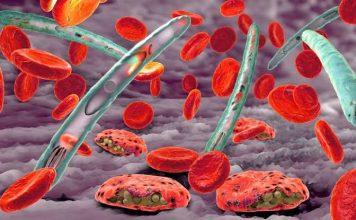Dr. Matshidiso Moeti, the Regional Director for Africa at the World Health Organisation, stated that despite several efforts to eradicate malaria in Africa, the disease’s reach is still significantly lower than the desired goal.
She made this observation during her address on World Malaria Day 2024, which is observed annually on April 25 to recognize global initiatives to combat malaria.
Moeti highlighted that 3.3 billion people in 106 countries are at risk of malaria, resulting in an estimated 627,000 deaths worldwide, particularly affecting African children in 2012.
She mentioned that although 35 African countries have implemented preventive measures for pregnant women, only 42 percent of those at risk receive the recommended three doses of preventive treatment.
Moeti acknowledged the progress made in the fight against malaria but emphasized that coverage remains far below the target of 80 percent, emphasizing that malaria continues to be a major health challenge in Africa.
She mentioned ,“Malaria remains a leading cause of illness, hospital admissions, and deaths, especially in young children and pregnant women. We appreciate the progress made over the last two decades.
“Since 2000, the world has mobilised more than US$50 billion to support malaria control and elimination efforts, and as a result, 2.1 billion malaria cases and 11.7 million malaria deaths were averted in the period 2000–2022.
“This investment reduced the malaria mortality rate by half, from about 29 deaths per 100,000 population at risk in 2000 to 14.3 in 2022, despite the COVID-19 pandemic. We have recorded milestones toward malaria elimination; Cabo Verde was recently certified in January 2024, after Algeria in 2017.
“In 2023, WHO approved the second malaria vaccine, R21/MatrixM, after RTS,S in 2021. Both vaccines will be rolled out in 19 countries in the African region this year; they will provide new hope for hundreds of thousands of children at risk of dying from malaria.”
She emphasized that as countries make progress, families are yielding dividends in terms of well-being, adding, “However, the African region has reached a crossroads in controlling the disease: 20 of the most affected countries that contribute more than 85 per cent of cases and deaths are in our region.
“Multiple challenges account for this, such as extreme weather events, conflict and humanitarian crises, resource constraints, biological threats, and inequities.
“With the international community, we commemorate this 17th WMD under the theme: ‘Advancing health equity, gender equality and human rights.’
“This year’s theme highlights the need to ensure continuous and equitable delivery of malaria services to all who need them despite funding constraints, ensuring adequate coverage of the most vulnerable and at-risk populations with effective interventions.”
She stated that the latest World Malaria Report highlighted the unequal impact of malaria on certain groups, including young children, pregnant women, people living in rural areas, and displaced populations.
She pointed out that infants and young children make up approximately 80% of malaria-related deaths, and research has indicated that children under five from the poorest households in sub-Saharan Africa are five times more likely to contract malaria than those from the wealthiest households.
Moeti also mentioned that certain high-risk populations, like refugees, migrants, and internally displaced individuals, have been identified in specific regions.
“In 2019-2022, 41 malaria-endemic countries suffered humanitarian and health emergencies and about 258 million people needed assistance because of health and humanitarian emergencies in 2022 alone,” she mentioned.
Despite efforts to combat it, Zambian Health Minister Sylvia Masebo emphasized that malaria continues to be a significant public health issue in Zambia.
She highlighted a significant increase in malaria cases in the country, with a 37% rise to 11.1 million cases in 2023 compared to 8.1 million the year before. Additionally, the number of malaria-related deaths also increased from 1,343 in 2022 to 1,602 in 2023.
Speaking ahead of the WMD celebrations, the Minister said, “Every day, 30,400 of our people got infected with malaria, and four people die from malaria.”
Masebo stated that 18 percent of the infections were in children under five years old, and one percent were in pregnant women. Despite the concerning statistics, she mentioned that Zambia has a chance to improve the situation through working together with all parties involved.
She informed that the government has provided more than 11.6 million insecticide-treated mosquito nets nationwide as part of the effort to combat malaria. Additionally, 742,057 eligible locations have been sprayed with insecticide through an indoor spraying initiative.
Furthermore, she emphasized that the government has been enhancing community support by training and empowering community health workers and other volunteers.
